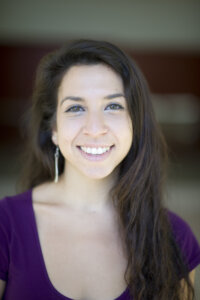Beyond ‘The Golden Bachelor’: 6 Jewish couples who found love later in life
Some have been married several times. Some don’t want to ever marry again. But these couples all found love.
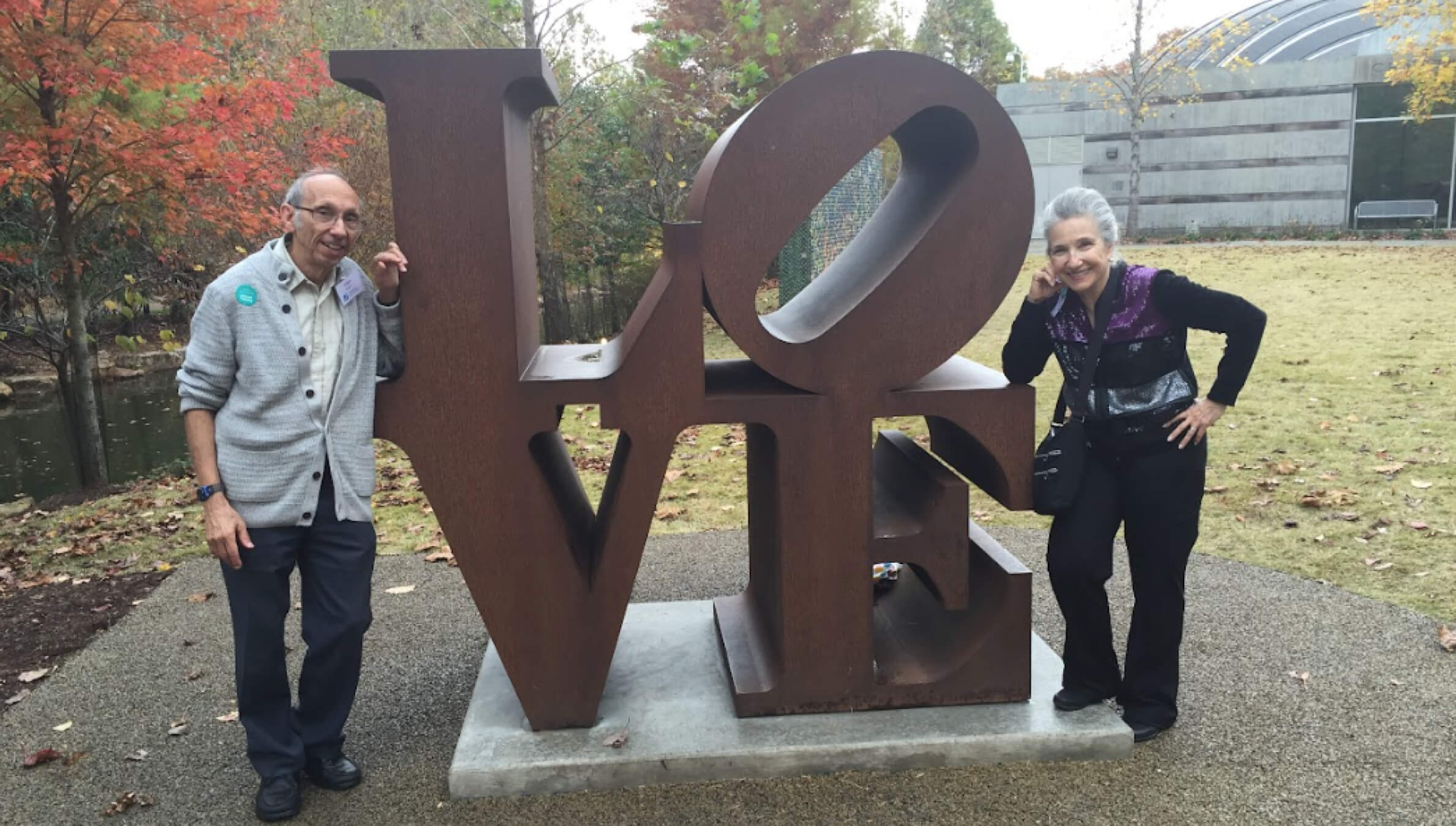
Graphic by Angelie Zaslavsky
Jewish matchmaker Judith Gottesman doesn’t like the premise of The Golden Bachelor, where the quest for love is turned into a competition. But she does like the way the spin-off of the ABC dating show franchise has for the first time put senior citizens in the spotlight.
The show, which debuted Thursday, features 72-year-old widower Gerry Turner. The nearly two dozen women vying for his affection are all 60 and up.
“Judaism has a very specific idea that you should have romantic love in your life,” said Gottesman. “You should find love at any age. And I’m certainly a strong believer in that. That’s why I have clients up into their 90s.”
A 2023 survey from the Jewish Federations of North America found that 66% of adults between the ages of 55 and 74 are married, leaving about a third who are not, though it didn’t break down those who were otherwise partnered.
The Golden Bachelor’s first episode drew 4.36 million on-air viewers. That’s over a million more than watched the premiere of the last edition of the series, which starred a 26-year-old bachelor. Across viewing platforms, 7.7 million people have watched The Golden Bachelor so far — the highest for the bachelor franchise in three years.
Inspired by the show and the power of real, untelevised tales, I set out to find Jewish couples who met around or well after their 50th birthdays. Here are six of their love stories.
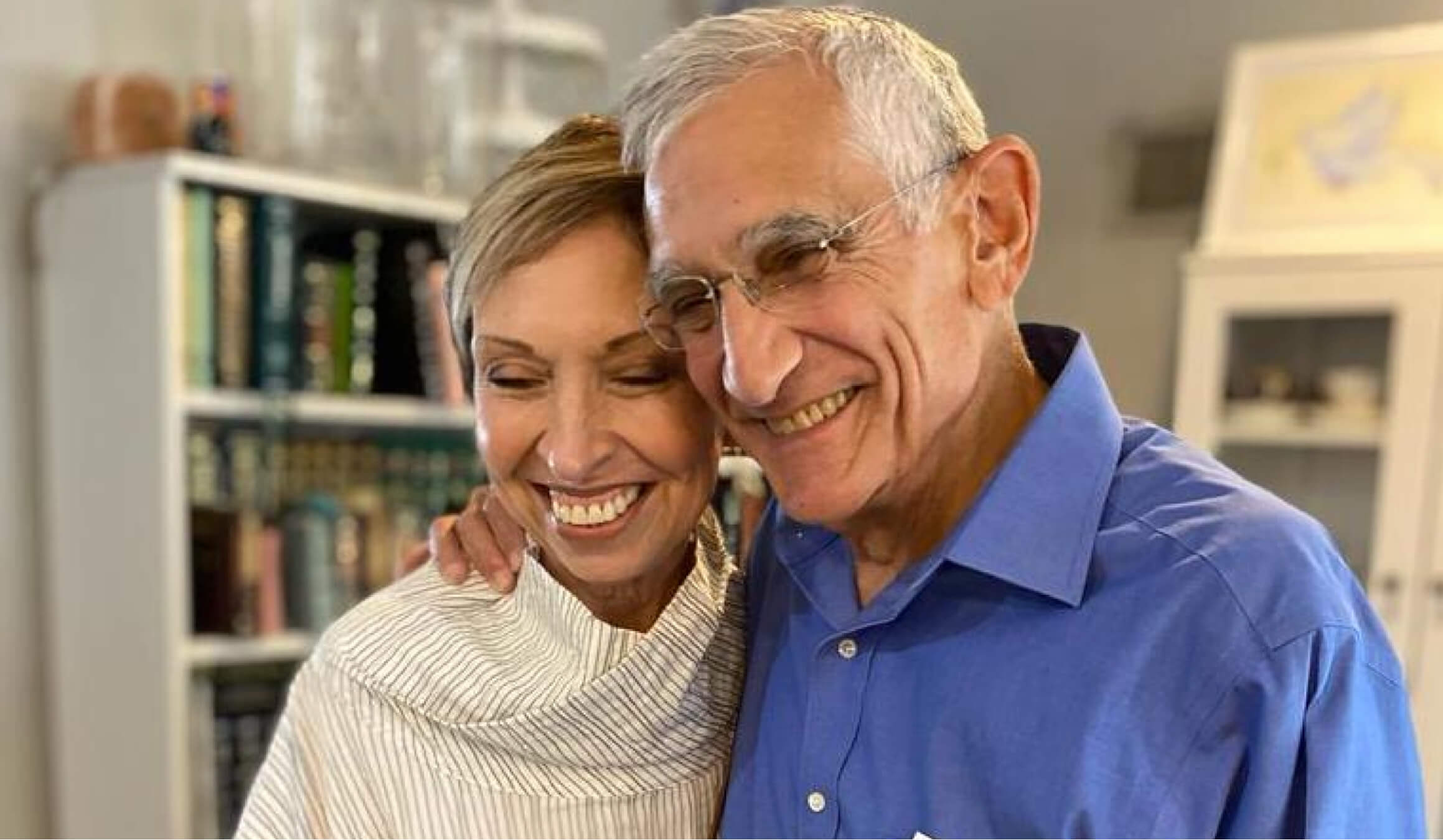
‘We wanted more’: Carol Osher and Edward Reingold
With a few unsuccessful dates under their belts, Carol Osher, 71, and Ed Reingold, 77, each of whom had had long, happy marriages before their spouses died, signed up for SawYouAtSinai, the Jewish matchmaking site.
Carol’s first match was with a man who’d been divorced twice, which made her nervous. She politely declined a date. Reingold met his first match — and there was no chemistry.
Then Ed looked at his second match and saw a picture of a woman with two of her grandchildren — “Me!” Carol mouthed as Ed told the story. The only problem? Reingold lived in Illinois and Carol was based in New York. “This is ridiculous,” Ed told a SawYouAtSinai matchmaker, who persuaded him to give it a try anyway.
So they got on the phone. Then they met in Boston, where both have children, and again when Carol visited her niece in Chicago. Then Ed came to New York to see Osher and meet her daughter and friends. “It was clear to us this was getting serious,” Osher said. “Then we decided to spend Sukkot together in Boston.”
That weekend, they also decided to get married, a step that was important to both of them, and shared the news with their kids. It was fast — they’d only been seeing each other for a few months — and the kids were a little surprised but nevertheless supportive. Ed and Carol had a small wedding with family in Newton, outside Boston, in January 2022.
“One of the things that Carol and I say is that we were each married for almost 50 years, and it was wonderful. And we wanted more,” said Ed, a retired computer science professor and department head.
“He’s such a good guy,” said Carol, a social worker and therapist who still works part-time. “I really enjoy his sense of humor. Not everybody does, but I do.”
Today, they split their time between New York and Illinois. They’re often off visiting family — they have between them a total of six children, 19 grandchildren and two great-grandchildren. Both Orthodox, their Jewish rituals align easily, and they keep kosher and spend Shabbat together wherever they are, save for the minyan Ed attends in Illinois that is, as they both acknowledge, “not very female-friendly.”
They might tune into The Golden Bachelor out of curiosity, though they find the idea of one man choosing from an array of women odd and superficial.
Those in search of love should open themselves to possibilities, they advise.
“You can’t have a list of requirements. You really just have to see if you connect with someone,” said Carol, who has volunteered as a matchmaker with SawYouAtSinai to help others who want what she’s found for a second time.
“The way we phrase it,” Ed said, “is we struck gold twice.”
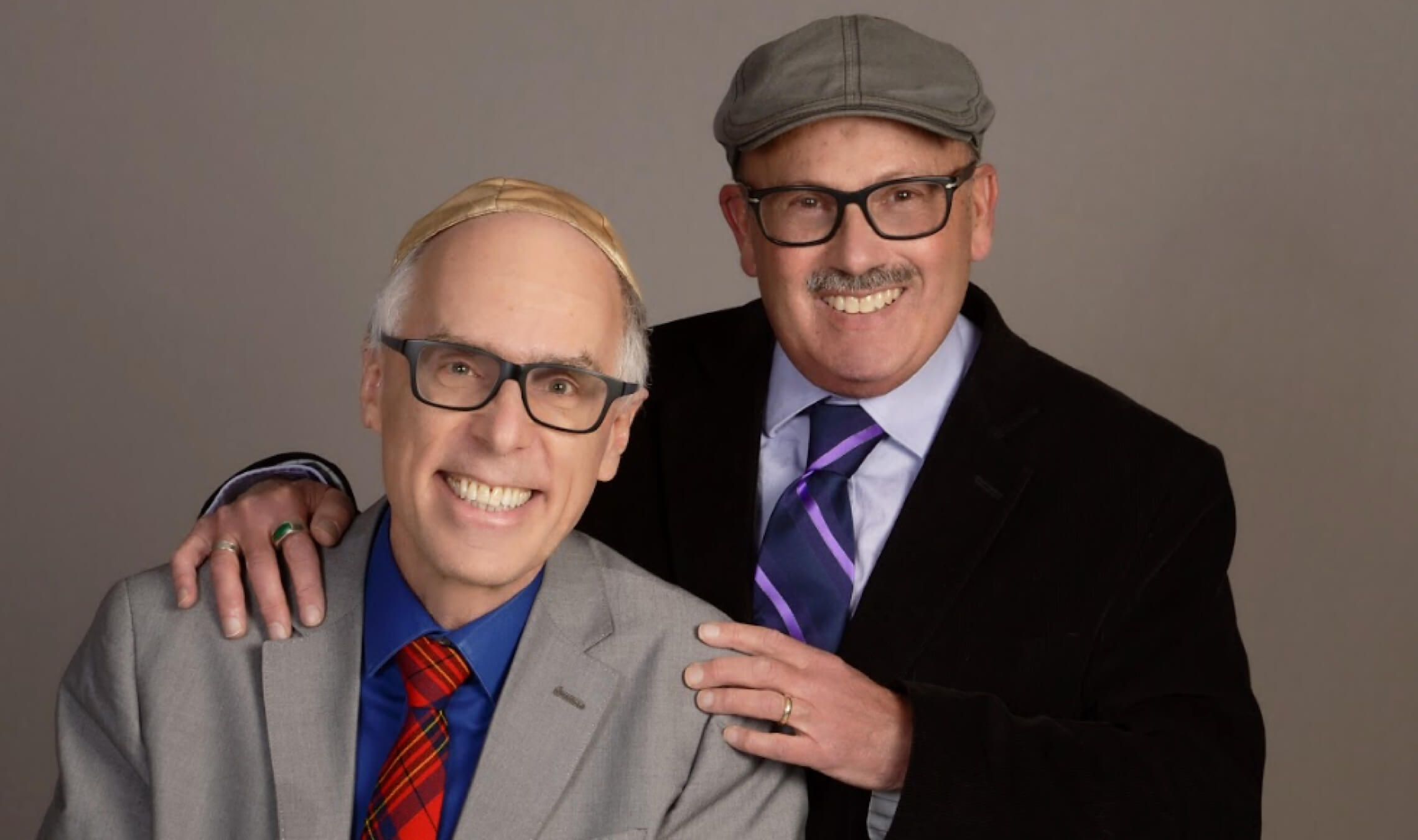
‘Embraceable you’: Joe Hample and Barry Wendell
After they sang “Oseh Shalom,” the synagogue standard and ode to peace, the rabbi at Los Angeles’ Beth Chayim Chadashim invited congregants to “embrace the person next to you.”
As the hugging began, longtime member Barry Wendell sang out a line from a Gershwin tune that seemed to match the moment: “Embrace me, my sweet embraceable you.”
From the row behind, Joe Hample, who had recently moved to town for rabbinical school, sang out the next line: “Embrace me, you irreplaceable you.”
“And I looked at him and he looked at me and we were like, ‘Ohh!’” Barry said.
That was 2005, before Joe was ordained as a rabbi and before he and Barry rushed their 2008 wedding to beat the vote on the California proposition that temporarily banned gay marriage.
“We threw a wedding together so fast, it would make your head spin,” Joe said. They hired the Israeli women who’d just catered a post-Rosh Hashanah lunch they attended, asked a friend to bring his karaoke machine, and made it happen while they still could.
Barry, born and raised in Baltimore, worked as a Social Security claims representative and substitute teacher, considered acting, sang as a cantor, and tutored kids preparing for b’nai mitzvah. At 53, he had a heart attack that helped him realize he was serious about finding a life partner. “I prayed for somebody to show up,” Barry said. “And then he showed up at temple.”
Joe had grown up in the suburbs of New York City, graduated from Harvard, and moved to San Francisco to pursue a corporate career as a systems analyst at Wells Fargo. His upbringing hadn’t been religious, but his parents “identified powerfully as Jews, even though religion meant nothing to them,” he said.
When Joe was in his 30s, living in San Francisco, a coworker invited him to Sha’ar Zahav, an LGBTQ+ synagogue. He became a regular, chaired committees, taught classes, and joined the board. “I gave myself a crash course in Judaism,” he said. After about a decade, “there was nothing left but to go to rabbinical school.”
When Joe was ordained in 2009, right in the middle of the recession, the only full-time job he could get as a rookie rabbi in his 50s was as a chaplain at Pelican Bay State Prison, all the way up north by the border of Oregon. “It’s very scenic, it’s very beautiful, but there’s absolutely nothing there,” Joe said. “There was no gay scene. There wasn’t much of a Jewish scene.”
Their next and latest stop took them across the country, to Morgantown, West Virginia, where Joe, now 67, became the rabbi of the Reform congregation at Tree of Life. Barry, now 73, served twice on the city council and ran a longshot campaign for Congress in 2022 as a queer, Jewish, liberal Democrat from a blue college town bubble in a deep red state, winning the primary but losing in the general election.
Nearly two decades on, they’re glad to have broken the unofficial rule of the LA synagogue where they met: don’t date within the shul. But they both liked the idea of finding someone within their Jewish communities, especially after dating mostly non-Jews.
“Even the nicest of them had difficulty understanding my values or my priorities,” Joe said. “Barry gets it.”
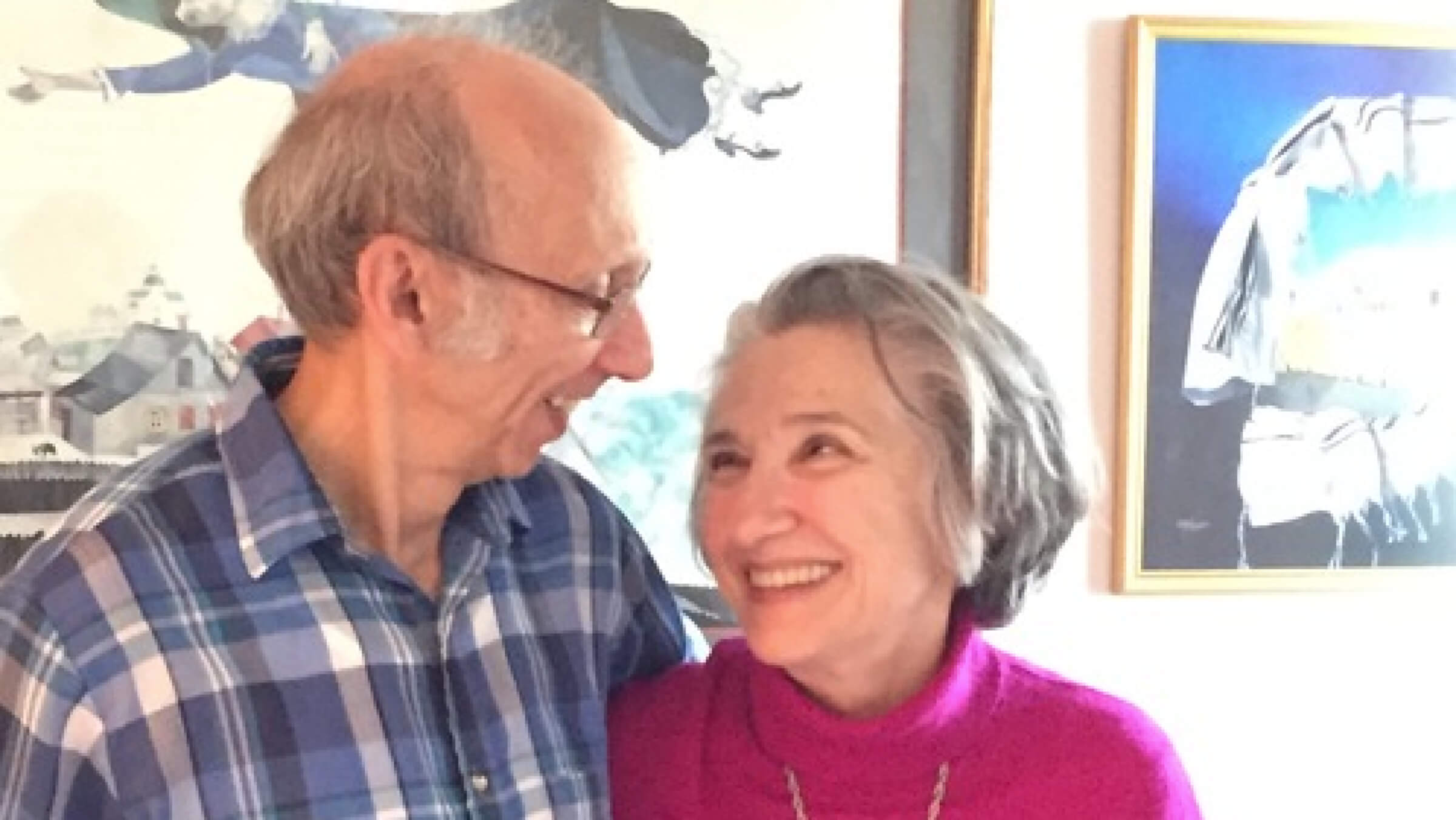
‘A buzz that really surprised me’: Alan Poisner and Sharon Lowenstein Poisner
Alan Poisner, 88, and Sharon Lowenstein Poisner, 85, spent most of their lives in the Kansas City area crossing paths without actually running into each other. They were born at the same hospital, their sons at one point were in the same Boy Scouts troop, and they even lived for a time in the same development, just a few blocks from each other.
They finally met nine years ago, at a discussion circle at Shalom Village, the retirement community Sharon had moved into a few months earlier.
Alan, a retired professor of pharmacology widowed after a long marriage to the mother of his two boys, wasn’t necessarily looking for another wedding, but he was interested in companionship. And he definitely noticed the smart woman who showed up that day. “She said a few words and I was impressed,” he recalled. So he offered her a ride home.
“No thank you, I’m walking,” answered Sharon, a former history professor, author, and attorney specializing in family law. But maybe, he nudged, she’d take the ride anyway? It was dark outside. She relented. “I invited him in for tea,” she said. “But I also said to him before I turned the key in the door, I said, ‘I just want you to know, I’m not interested in remarriage. I’m not interested in a relationship. And I don’t date. All I’m interested in is good company.’”
Sharon’s first marriage with the father of her four sons had ended in divorce after 32 years. “We were two good people who were mismatched, and I understood that from very early on,” she said. Her second marriage, to Rabbi Gilbert Shoham, was “a real love match,” she said. But after a decade together, Shoham died in 2012, and Sharon thought that was it.
“I never expected to have lightning strike me twice,” she said. “So I wasn’t looking.”
But a few weeks after they first met in May 2014, “we were sitting in a movie and he put his arm around me around my shoulder and I got a buzz that really surprised me. And I thought, ooh,” Sharon said. By October, they were married.
They’ve since been busy. Alan is a champion race walker who won gold in two events at the National Senior Games in Pittsburgh this past July, competing in the 85-89 age category for the last time. He intends to set new records in the 90-94 age group in Des Moines in 2025. Sharon competed for the first time in Pittsburgh, in a power-walking event, and both are headed to Utah this month to compete in the Huntsman World Senior Games.
Sharon’s been giving talks — including lectures on antisemitism — and leading legacy writing groups. They both work with a physical trainer twice a week at the JCC, and are involved with various local Jewish organizations.
Sharon kept coming back to one point: Even though she changed her mind about a third marriage, “I didn’t need a man to complete myself,” she said. Entering a partnership just for the sake of it or out of desperation, she believes, sets you up for failure.
“But you can’t deny the synergism,” Alan said. “The two of us together are greater than either one of us.” Sharon couldn’t. “That’s true,” she said. “That’s true.”
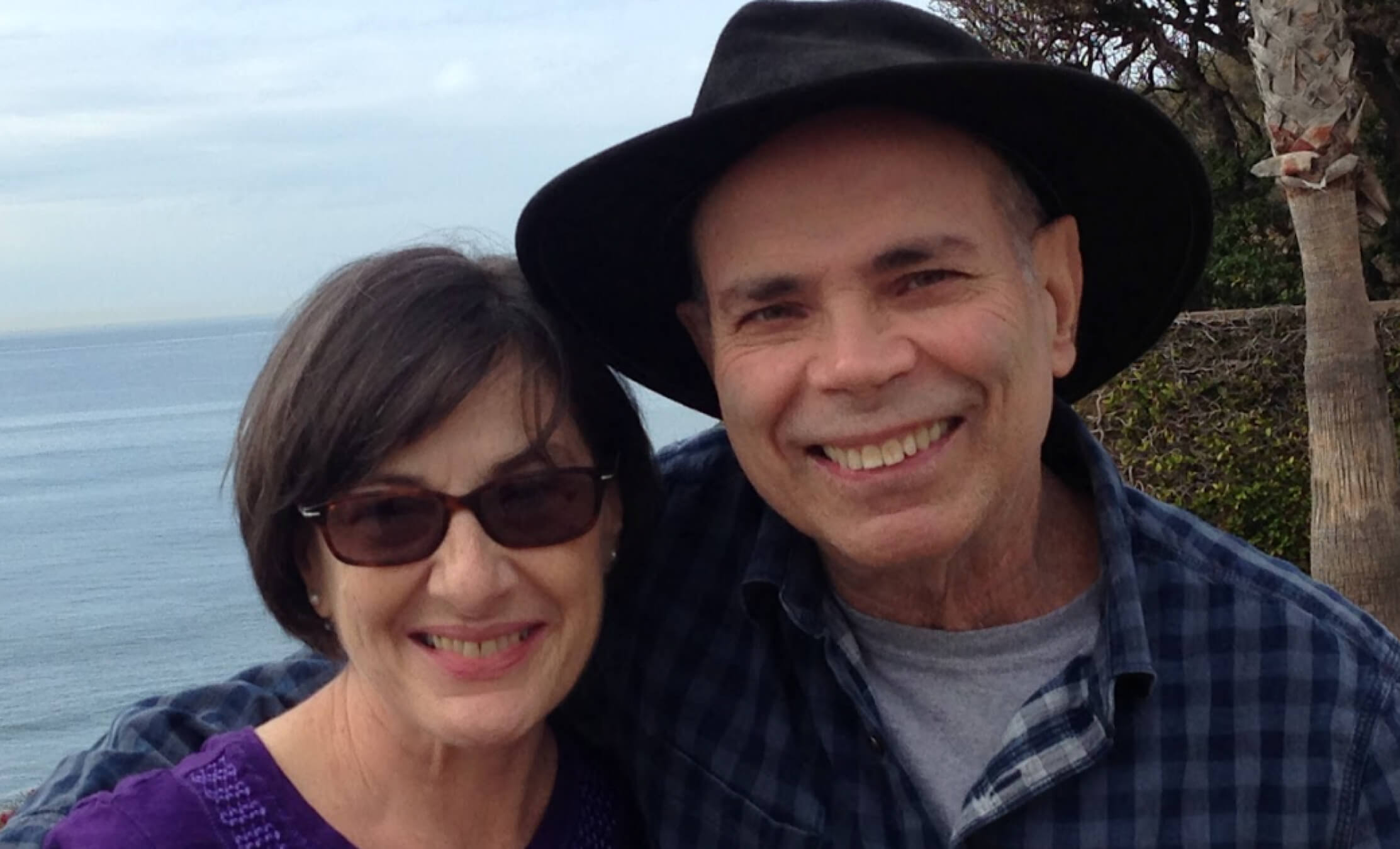
The Brooklyn-Queens commute: Paula Teitelbaum and Robert Marx
Paula Teitelbaum, now 69, wasn’t looking for a boyfriend after her 25-year marriage dissolved. “I was done,” she said. As for Bob Marx, now 78, the last of his two marriages had ended “unpleasantly.” He was looking more to have fun than to start up a serious relationship.
But a mutual friend — Bob knew her from college and Paula knew her from a now-defunct klezmer camp in the Catskills — wanted to set them up, and mentioned Bob’s interest in taking a tango class. That caught Paula’s attention.
“I might get a dance partner out of this,” she thought.
They met in June 2014 at a bakery not far from the YIVO Institute for Jewish Research by Union Square in Manhattan, where Paula has been teaching Yiddish since 1987. Born in Poland after WWII and raised in a secular but proudly Jewish and Yiddish-speaking home before moving to the U.S. in her teens, she also teaches English and Spanish. Bob — who was born in Luxembourg but raised a New Yorker since he was 2, attending yeshiva on the Lower East Side — also teaches. “I translate physics into understandable English,” for high schoolers and for students at Hunter College,” he said.
They talked candidly about their lives on that first date. “My attitude was tachles, just talk plain, pashut, what’s going on?” Bob said, splicing in the Hebrew slang for cutting to the chase and the Hebrew word for simple. At their age, “why waste time on make-believe?”
But then he had a question for Paula. “Did I do most of the talking?” It was one of several moments in our conversation when he paused to ask how Paula remembered something or felt about it.
“Oh yeah,” she said without hesitation, making us all laugh. “Absolutely.”
“I’m sorry! Did I ask you to talk about yourself?” he followed up, keeping the joke going but also sounding sincere and concerned. She affirmed that he did.
Their relationship grew slowly from there over months and years. Paula introduced him to new ideas and ways of thinking, giving him the “seykhel” that he lacked, Bob said, using the Yiddish word for wisdom or common sense. Paula enjoys Bob’s sense of wonder about the world. She said her daughter explains it best. “Bob is a 5-year-old in a 78-year-old man’s body.”
Nearly 10 years into their relationship, they don’t want to move in together, and they don’t want to get married.
“If you’ve had a long-term problematic relationship that caused you to leave, to get divorced — divorce is a pretty traumatic step — you don’t want to do that again,” Paula said. “You want to maintain your autonomy. It feels good to have my own home, and to be the boss in my own home. And I think Bob feels the same.”
He does, but he’s perfectly happy to schlep from his place in Brooklyn to Paula’s in Queens to spend Shabbat together. They go to the movies and theater. They take walks and go out to eat. They go to Jones Beach. And sometimes they travel together. At the end of the day, they just like spending time with one another. But they also “know how to be tolerably apart,” Bob said. “I think we’ve found some kind of a balance between intimacy and separateness.”
His advice to older singles is to know themselves and be authentic as they look for a relationship. Paula doesn’t want to advise anyone.
“I have absolutely no insights,” she said with a chuckle. “I don’t know how this thing works for anybody else.”
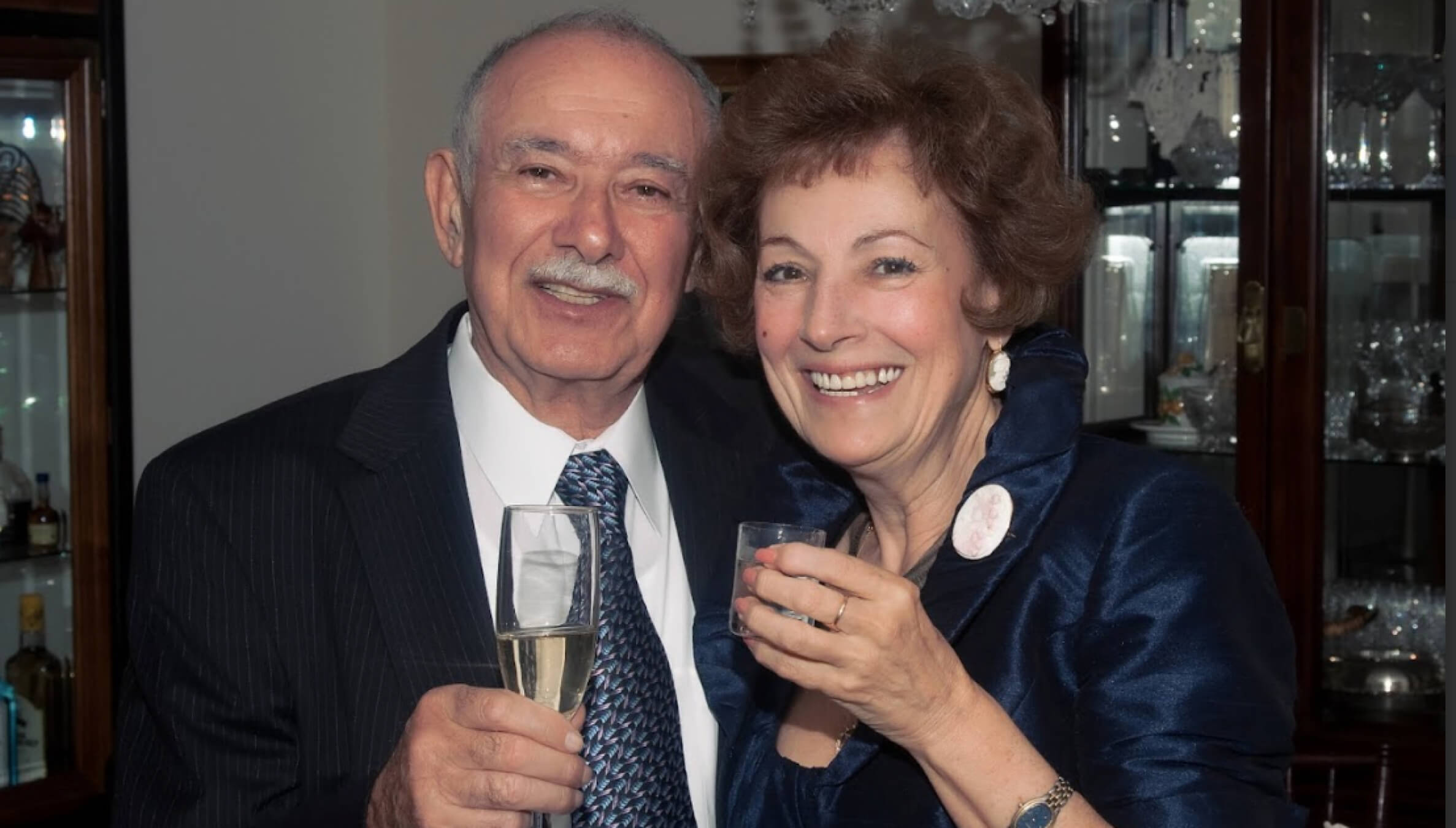
Their kids got married. Then they did too: Genrietta Lagutina and Eugene Plotkin
Genrietta Lagutina, 85, and Eugene Plotkin, 91, met at their children’s wedding in 2002. Genrietta’s daughter married Eugene’s son. At the time, Genrietta was divorced, and Eugene was still married to his first wife. They all became good friends who spoke frequently over the phone and even traveled together. It wasn’t until seven years post-wedding, after Eugene became a widower, that things took a romantic turn.
Both immigrants from Russia, Genrietta and Eugene are part of the Holocaust Survivor Program at the Jewish Social Service Agency serving the Washington, D.C., area. Born in St. Petersburg, Eugene was 8 when the siege of Leningrad began. His father worked at a weapons plant and, a year in, his family was evacuated. He eventually immigrated to Israel before moving to the U.S. and then Canada. Genrietta was born and raised in Moscow, and remembers when the city was surrounded by Nazis. The Battle of Moscow concluded with the capital city still in Soviet hands, and her family fled east. She eventually immigrated to the U.S., in 1995.
The pair spoke to me from their apartment in Rockville, Maryland — they split their time between the U.S. and Canada — with some tech and translation help from their JSSA care manager. Genrietta, a retired computer programmer, did most of the talking, while Eugene, a former professor of electrical engineering, listened.
On a visit to their married children in California, they realized just how much they had in common beyond their kids. Eugene later invited Genrietta to visit him in Canada and, at the end of the trip, he proposed. She said yes. They got their marriage license on a subsequent visit and had a ceremony and a big party with their families on the next visit after that, with Genrietta’s daughter on the piano and lots of singing. That was 14 years ago. “We are still in love,” Genrietta said.
They spend a lot of time with doctors these days. Eugene needs dialysis three times a week, sessions that take about four hours each. But they also keep up with the news and get together with friends, often other Russian immigrants, in both Rockville and Toronto. They dedicate evenings to music and poetry, sometimes focusing on one particular composer or writer.
“Each day for me is a holiday, each morning for me is an event,” said Genrietta. Her advice to older singles who want to be in a relationship: “Never lose hope.”
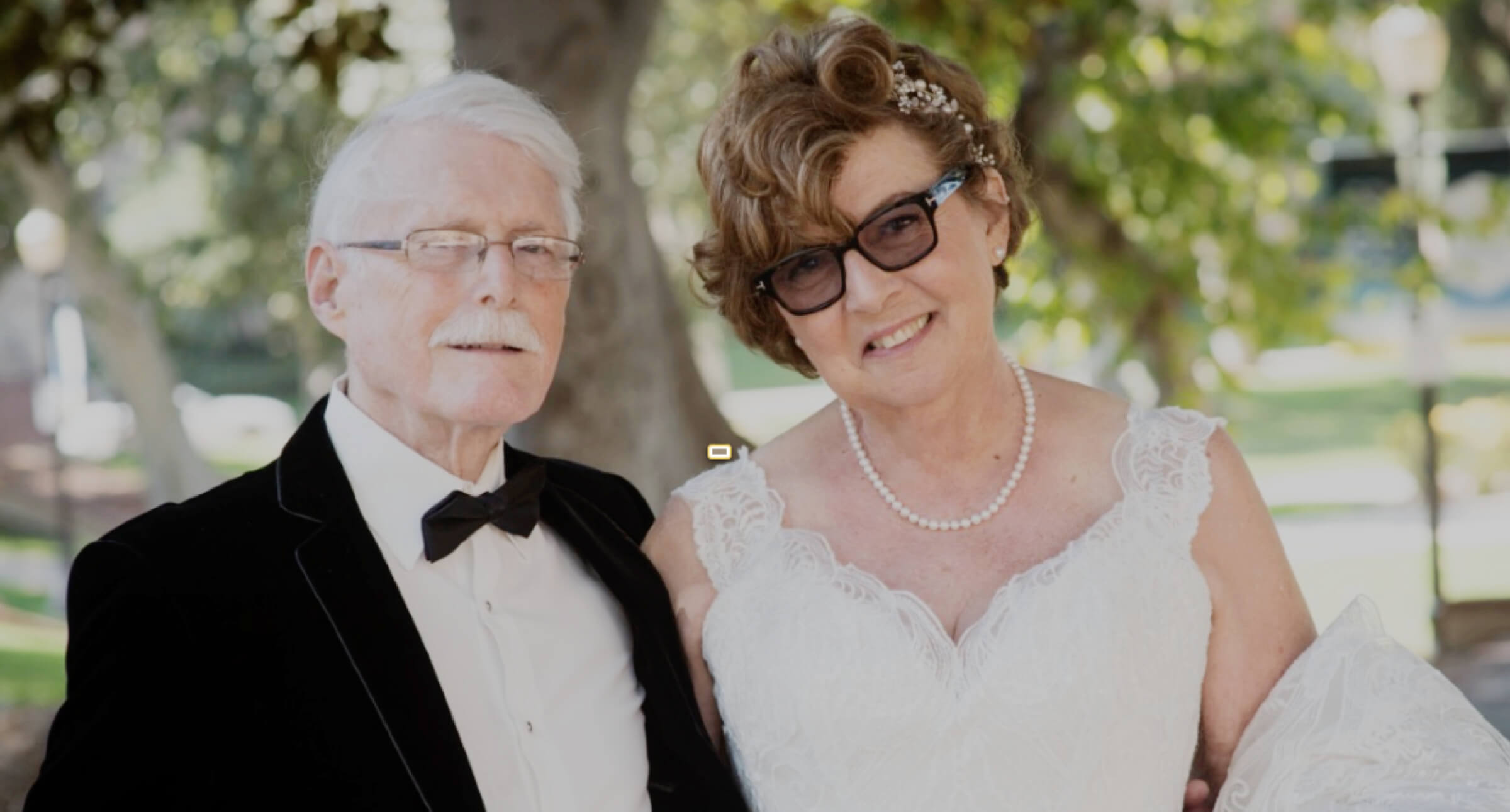
A first wedding: Ellen DuBois and Arnold Schwartz
When Ellen DuBois and Arnold Schwartz met, they were 65 and 66 respectively, and neither had ever been married.
Ellen had searched most of her adult life for a partner — though not for marriage or children. By the time they met, “I had stopped actively looking,” she said. “I think that represented not so much a discouragement as a step forward in my own life, that I was increasingly content in my own life. But I always sort of kept an eye out.”
Active in the feminist movement in the 1970s, Ellen became a scholar of modern women’s history, teaching and writing at the University of Buffalo and then UCLA. Though she retired in 2017, she still writes: She published Suffrage: Women’s Long Battle for the Vote in 2020, and she’s about 400 pages into a biography of Elizabeth Cady Stanton. Arnie, who’s also retired, had spent most of his career in the aerospace industry at NASA’s Jet Propulsion Laboratory, a research and development center founded and managed by Caltech.
“We have very absorbing careers, but in very different directions,” Ellen said.
They both liked yoga, though, and 11 years ago they were taking different classes with the same teacher. Arnie was looking for a ride to a yoga retreat they both planned to attend when the instructor pointed him toward Ellen. During lunch at the retreat, another participant asked Arnie if he would be interested in dating her mother.
Ellen realized Arnie was a prospect. “I’m a very competitive person,” she said, and remembered thinking, “I’ve got to get going!”
She noticed the way he held out his hand to help her over a puddle on a walk one time. She also liked the way he called her out on another occasion, when she was being what she calls her “bossy self.” “I was impressed with his openness and authenticity,” she said.
They started traveling together and meeting each other’s friends and family — most of Arnie’s nearby and most of Ellen’s on the East Coast. It wasn’t long before Arnie was de facto living in Ellen’s bungalow. Eventually he sold his nearby condo.
“We had sort of made an implicit decision to be together forever,” Ellen said. But marriage didn’t feel inevitable. Perhaps it was the thought of all the “hullabaloo” of wedding planning, as Arnie put it, or the impossibility of Ellen’s aging mother traveling to a wedding.
Several years in, however, it dawned on them that they wanted to tie the knot. And when they finally did in September 2019, at 72 and 73, they had three events: an aufruf at the small, unaffiliated congregation Ellen had been part of for years, a rehearsal dinner in the backyard, and a big wedding at UCLA.
“It’s never too late late” is cliché but true, said Ellen, who had one more thought to share with older people looking for love: “Take advantage of your age and wisdom.”



